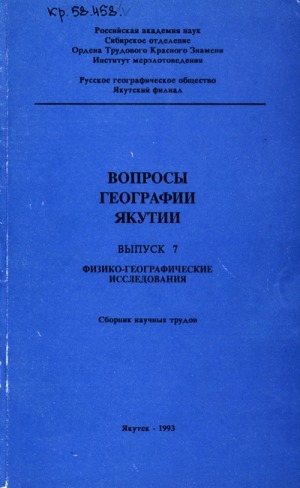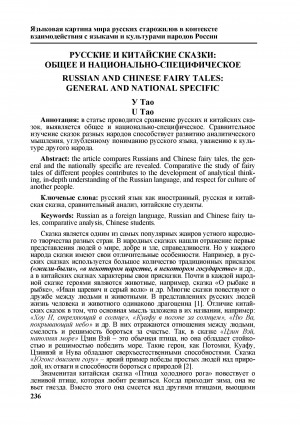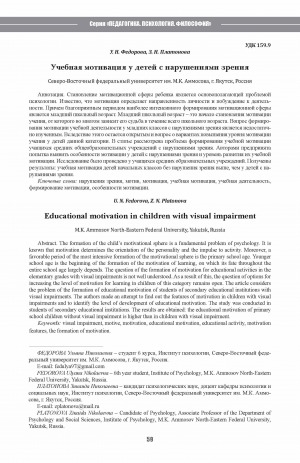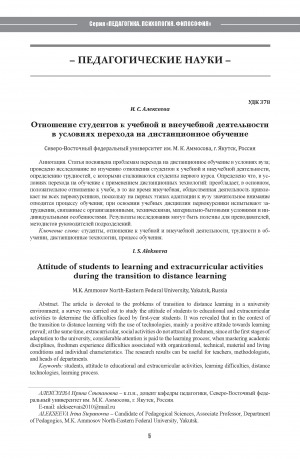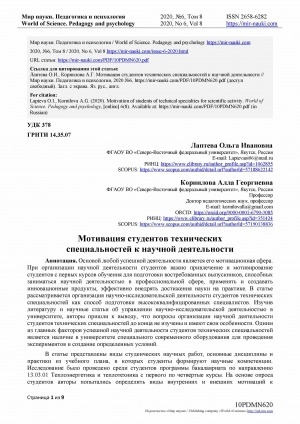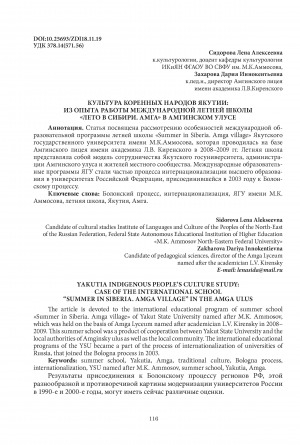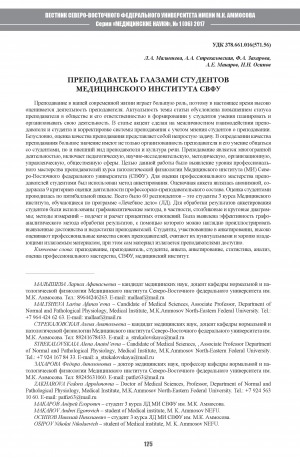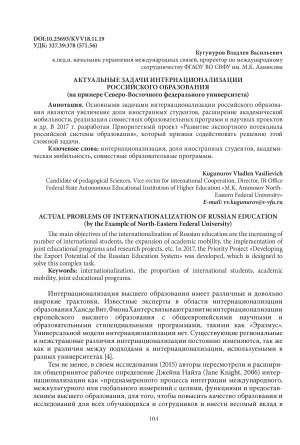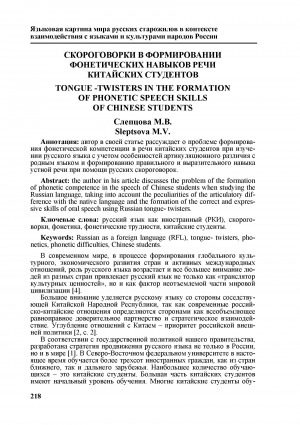В статье анализируется региональный аспект интернационализации системы высшего образования России на примере Северо-Восточного федерального университета им. М. К. Аммосова. СВФУ рассматривается как организация, призванная социализировать российских и зарубежных студентов, в том числе и посредством кросс-культурных коммуникаций. В мае 2022 г. было опрошено 116 китайских и 116 российских студентов, обучающихся в СВФУ. Рассматривались такие направления обучения, как филология, управление персоналом, экономика, это три наиболее востребованные образовательные ниши у китайских студентов. Впервые в региональной социологии нами также была изучена степень мотивированности китайских и российских студентов в процессе обучения в вузе, исходя из национального менталитета, проводился сравнительный анализ. Использовались методики Д. МакКлелланда, Е.П. Ильина, Г. Хофстеде, а также методы анкетирования, аналитической индукции. Выявилось, что иностранные студенты демонстрируют более высокие достижительные мотивации, нежели российские студенты. Китайские студенты в процессе обучения в вузе опираются на такие черты национального характера, как трудолюбие, дисциплинированность и прагматичность. В то же время россияне (якутяне) проявляют при обучении такие черты национального менталитета, как жизнестойкость, открытость и коммуникабельность. Ответственность за установление эффективных кросс-культурных коммуникаций в вузе лежит в основном на россиянах, и сами иностранцы ожидают от них такой деятельности.
The article analyzes the regional aspect of internationalization in the system of higher education in Russia on the example of the M.K. Ammosov North-Eastern Federal University (Yakutsk, Yakutia). NEFU is considered as an institution that socializes Russian and foreign students through facilitating cross-cultural communication between them. In May 2022, 116 Chinese and 116 Russian students studying at NEFU were interviewed. Philology, Human Resource Management, and Economics as fields of study were considered. These were the three more popular niches of study among the Chinese students. Preparing of high level specialists by the different specializations of Economics, in the field of management will help to strength personnel pool for the regional economy. Also, for the first time in the regional sociology, the motivation of Russian and Chinese students in the process of studying in the university was studied, a comparative analysis was carried out. The methods of McClelland, Ilyin, and Hofstede, as well as the methods of questionnaires and analytical induction were used. It was revealed that the foreign students demonstrated higher achievement motivation than Russian students. The Chinese students rely on such national character traits as industriousness, discipline, and pragmatism in the process of higher education. At the same time Russians (Yakutians) show such traits of the national mentality as vitality, openness, and communicativeness. The responsibility for establishing effective cross-cultural communication in the university lies mainly on the local residents, and the foreigners expect such activities from them.


